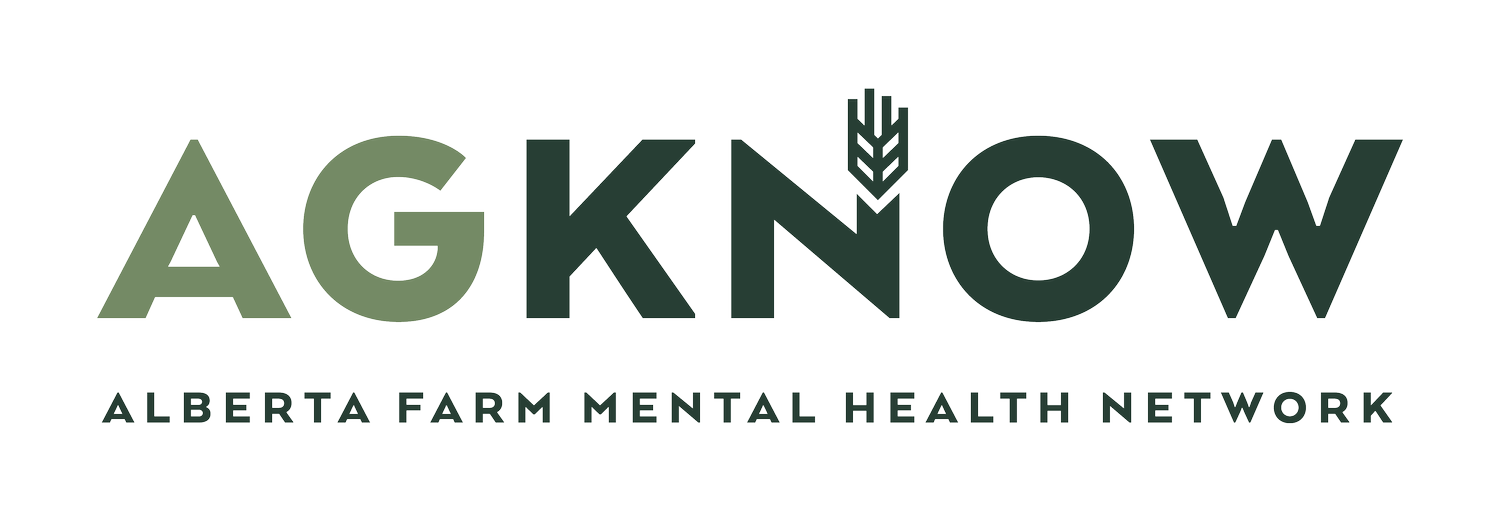FARMERS DON’T GET DEPRESSED…RIGHT?
Everyone feels sad or “blue” every once in a while. We might say something like, “I’m not myself lately,” when we feel a bit down or miserable. Usually, these feelings pass in a couple of days or less.
But if you’re feeling an ongoing sense of sadness and hopelessness that doesn’t seem to go away after a couple of weeks, and it's starting to interfere with your daily routine, it could be a warning sign of a deeper problem.
Over 30% of Canadian farmers experience depressive symptoms.
As a farmer, you probably don’t talk about feeling depressed except when you’re maybe joking around, like, “These gas prices are making me depressed.” But make no mistake - depression is a real issue for many farmers.
Between 2015 and 2016, researchers at the University of Guelph conducted a survey of over 1,000 Canadian farmers to assess their mental health. One of their key findings was that 34% of farmers reported experiencing depressive symptoms. This rate among farmers was a lot higher than what has been reported in the general population, which was 7.6% of adults.
What is depression?
Clinical depression is a common and serious medical condition that can impact how you feel, think, and behave. In Canada, it’s estimated that one out of every three people will experience depression at some point in their life. The good news is that there are treatment options that can help you.
Depression causes feelings of sadness and/or a loss of interest in activities you once enjoyed.
What are common signs of depression?
Depression can sometimes disguise itself in unexpected ways, such as:
Feeling sad
Lack of interest in activities you once enjoyed
Changes in your appetite, eating more or eating less
Difficulty sleeping or sleeping too much
Feeling tired and not having much energy
Doing more purposeless physical activities such as being unable to sit still, pacing, or wringing your hands
Feeling worthless or guilty
Trouble thinking and concentrating
Having thoughts of death or suicide
If these symptoms last at least two weeks and interfere with your day-to-day activities, this might signal that depression is setting in.
Instead of working harder, we should work smarter when the going gets rough. Here are some tips if you think you or someone you know is dealing with depression:
1. Recognize the Problem
Ignoring the problem won’t make it go away. We need to work to remove the stigma around mental health. It’s okay to talk to someone, ask for help, or ask someone to listen.
2. Get Help
If you are concerned that you or someone you know might be showing signs of depression, it is important to get support. You should contact your doctor or a mental health professional.
3. Create a Community
Make time each week to talk and connect with fellow farmers. It could be a group from church or just a group of folks that meet at a local coffee shop to commiserate and share stories. Many experts say that listening to others in a non-judgemental and empathic way can be very helpful.
So, how are you, really?
We know how hard it can be to check in with yourself when it’s busy around the farm. We’ve created a completely anonymous self-check-in tool to help you take a minute to see how you’re really doing.
Struggles with mental health are common in the farming community. In fact, many farmers and farming families report very high levels of stress, signs and symptoms of burnout, depression and anxiety. Sometimes, it’s good to take a moment and check in on how things are going.
Article by Dr Rebecca Purc-Stephenson
Applied Social Psychologist and Professor in the Department of Social Sciences
BOOKING AN AGKNOW SESSION
CHOOSE A THERAPIST
The members in our referral network have experience with farmers and the agriculture industry in Alberta. We know context is important so you can spend less time getting them up to speed and more time getting to the root of the issue.
SCHEDULE A CALL
You have direct access to everyone in our referral network, so once you find a therapist you resonate with, fill out their form and book your first session.
TALK ABOUT IT
Whether in person, virtual or through a telephone session now is your chance to talk about how you are really doing. Remember - we were never meant to do this alone.




